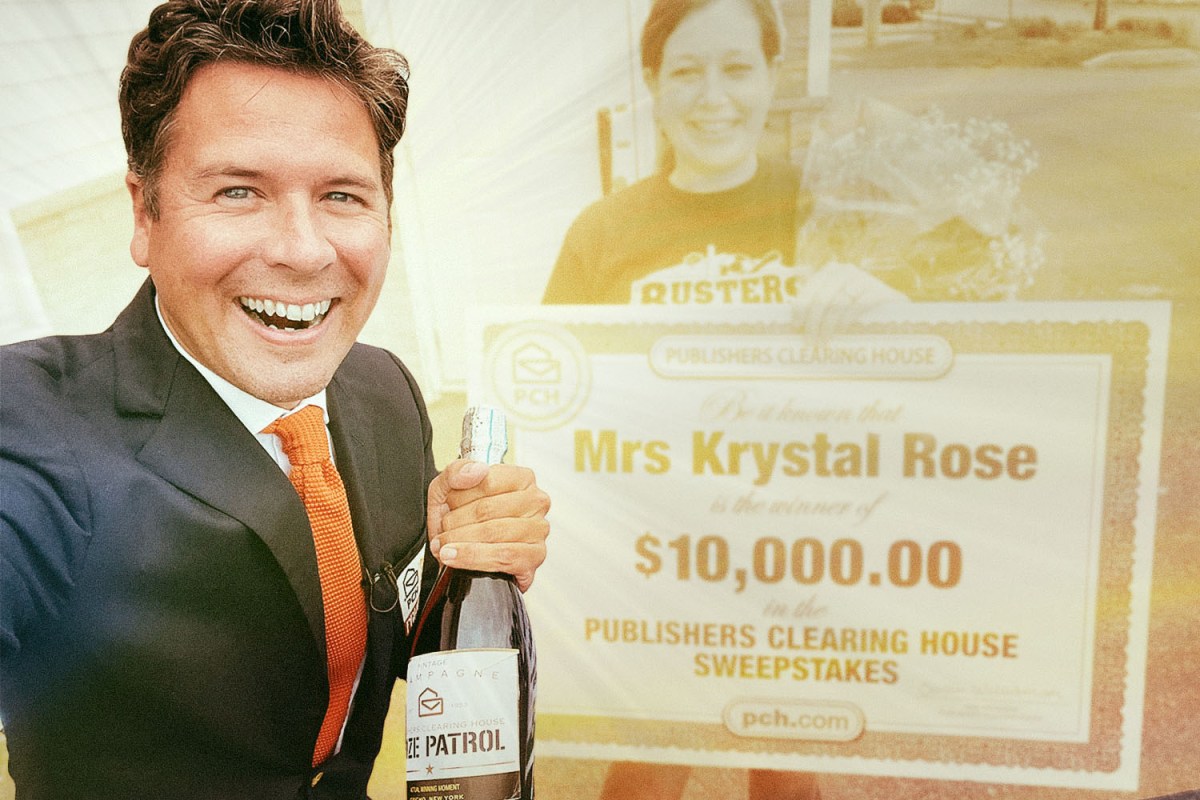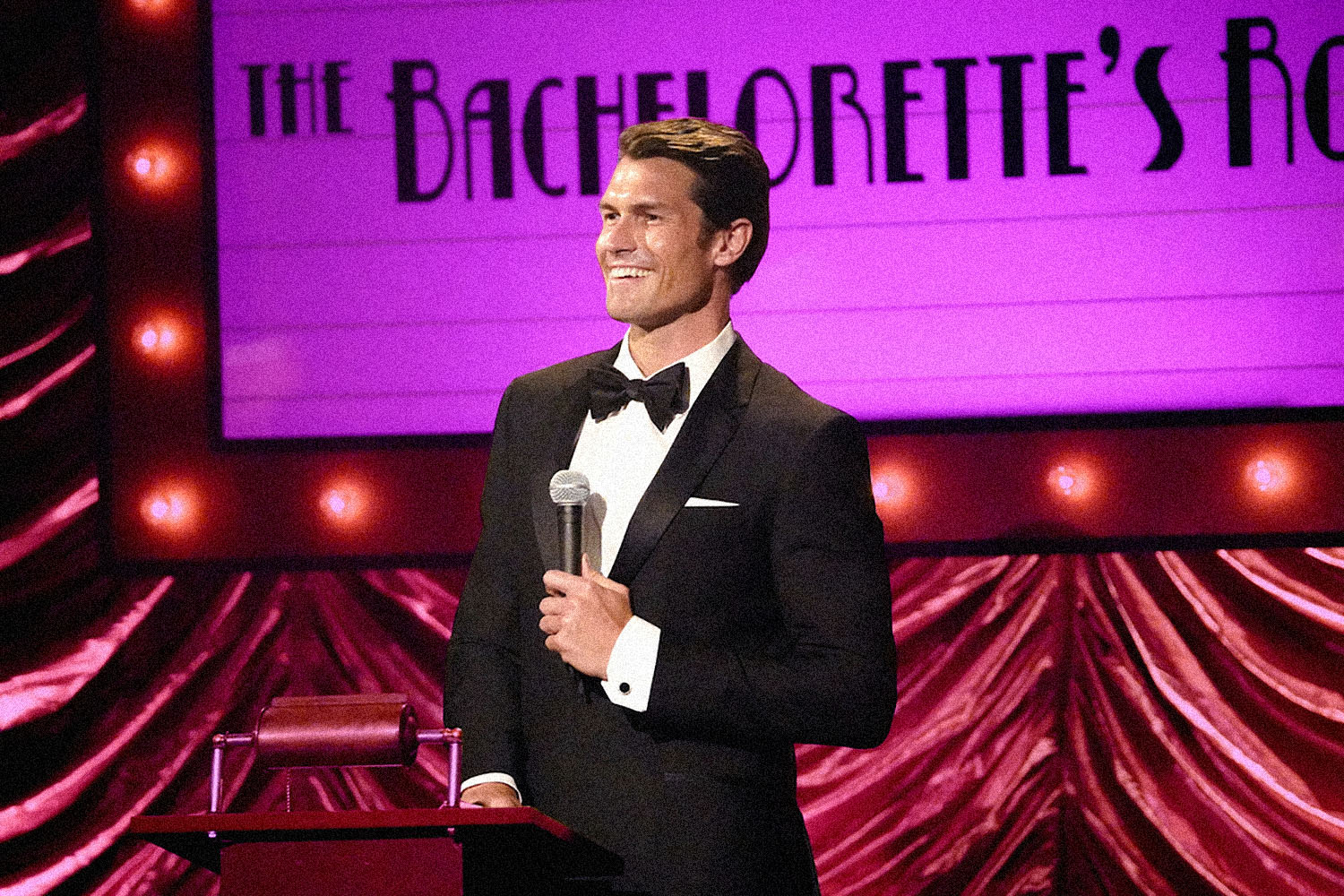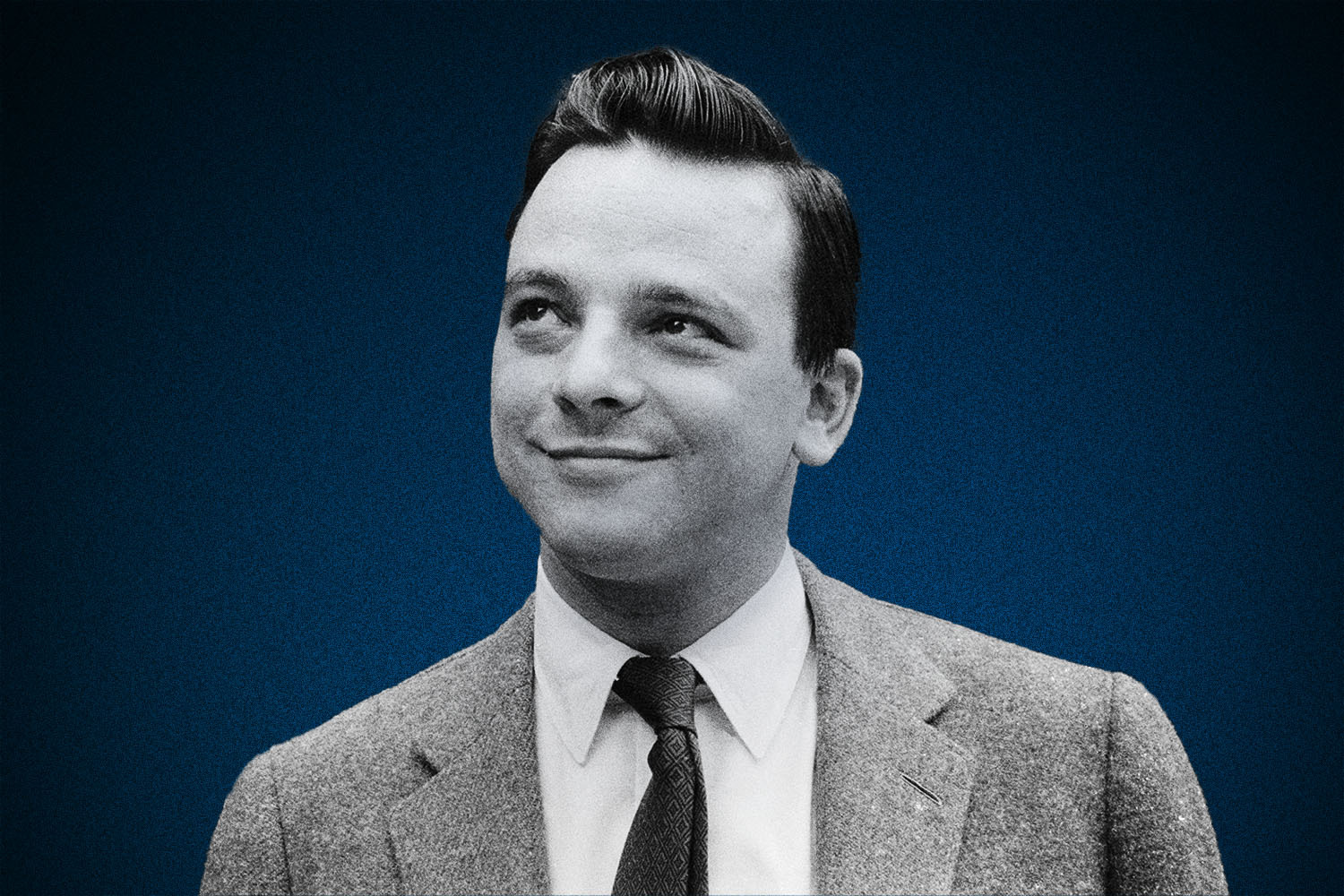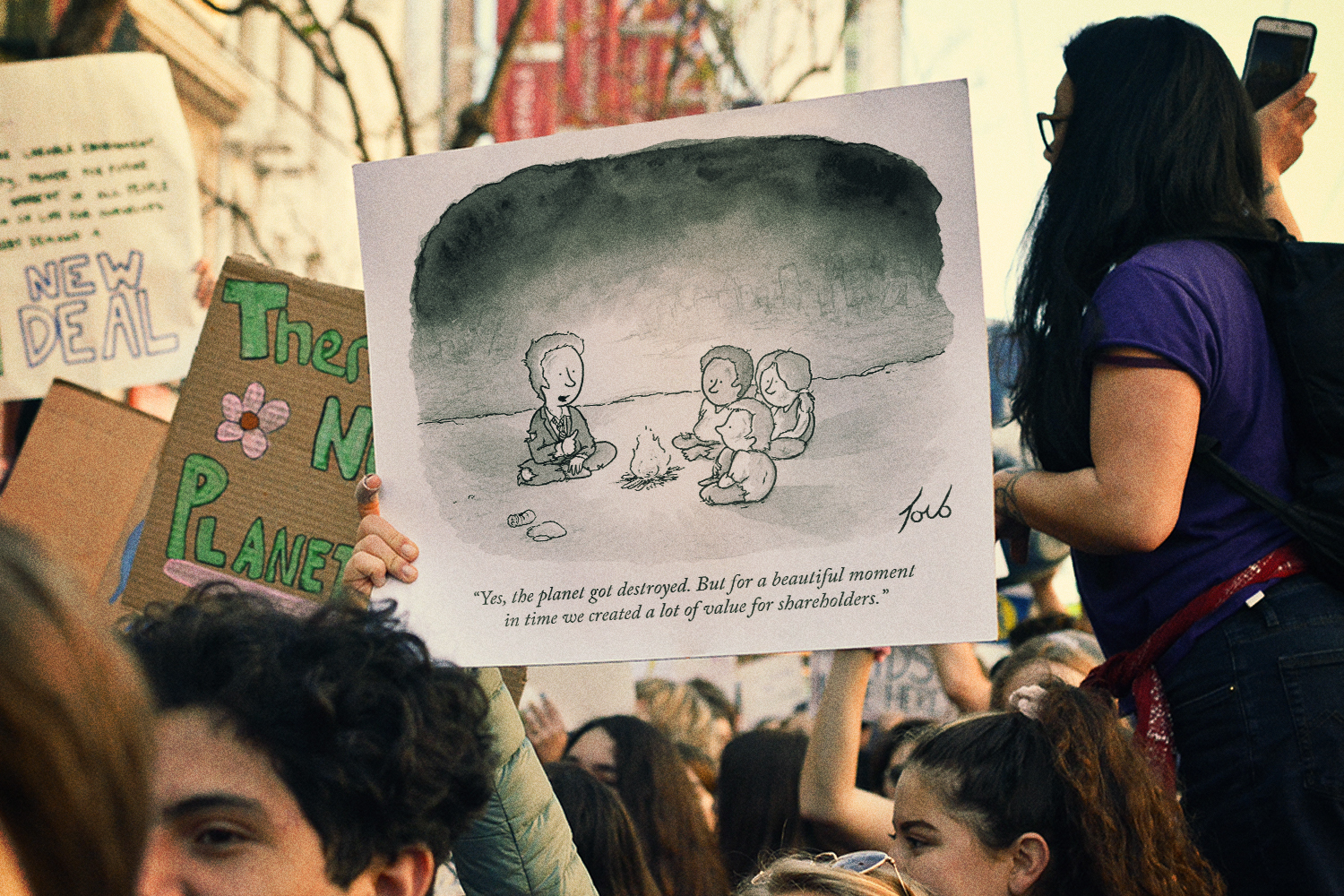Howie Guja is living the Long Island dream. At 39 years old, he has a wife and a couple kids, a great head of hair and a 1988 Land Rover Defender. In his free time you can find him duck hunting and fly fishing, and in the summer it’s all about the boat life. “I’m on my boat after work, before work, five to seven days a week,” he tells InsideHook. “You can’t really keep me off the water.”
It’s almost as if he’s stepped out of a Ralph Lauren or Brooks Brothers ad, which makes sense, because he’s modeled in campaigns for both those titans of Ivy style, though he downplays it. “It’s usually through someone I know there,” he says. “And as you probably know, in the fashion world over the last few years there’s been more and more focus on using ‘real people.’”
By any measure, Guja lives a charmed life. But in his work, he lives a supercalifragilisticexpialidocious one, one where he transforms into a fantastical character on the level of Mary Poppins, Cinderella’s fairy godmother or Aladdin’s genie. He spends his days flying around the country and handing out oversized checks representing thousands if not millions of dollars in prize money to unsuspecting Americans while clutching a kaleidoscope of balloons. You see, Howie is on the Publishers Clearing House Prize Patrol.
“I’m standing there with the camera crew with that big check, the balloons, I have that blazer on, it looks pretty legit,” he says, recounting a recent moment on the job around Salt Lake City, Utah. “I’ve had people say, ‘Wait, is this Candid Camera or something?’ Or ‘am I getting punked?’ I’m like, ‘No, no, this is legit.’”
Guja has been working at Publishers Clearing House since 2006, but joined the Prize Patrol in 2015. While the company was founded in 1953 as a direct-mail magazine subscription service, in recent years they’ve pivoted to digital endeavors — online product sales, gaming websites, apps — bringing in $1 billion in revenue a year as of 2017, according to Business Insider. That means they have more than enough cash to continue running the marketing campaign that’s made them famous: showing up unannounced at the homes of people who have entered their sweepstakes and giving away huge amounts of money, ranging from a one-time payment of $10,000 to $5,000 a week “forever.”
Yes, PCH really does give away money. As Guja explains, he flies to a new part of the country just about every week of the year, giving away 40 to 50 prizes himself annually, though they also mail some prize money. That’s not to say you have a particularly good chance of winning. According to the company, you have a 1 in 6.2 billion chance of winning $5,000 a week forever, a prize they give out at least once a year and which means weekly payments for the life of the recipient and then after that for the entire life of a designated beneficiary. Those odds are much worse than the Powerball, which is 1 in 292 million, even for the largest jackpot ever, which was $1.5 billion. (For smaller PCH prizes, the odds are better.)
For you, the American public, the chance of Guja showing up at your door with his million-dollar smile and check is astronomically low. But for Guja, these one-in-a-billion moments are just another day at work. In a country where the default worldview can feel increasingly pessimistic, and even at a company that has been repeatedly sued for alleged deceptive practices while simultaneously trying to thwart scammers posing as PCH, his job allows him the unique experience of eternal sunshine and serendipity.
Talking to Guja about his most memorable days at work — which I did last week for twice the amount of time I originally planned in my schedule — is like watching a dozen Hallmark movies in fast forward.
The first sweepstakes winner that pops into his head is Laurie Aragon, one of the first trips Guja participated in back in December 2015. She lived in Farmington, New Mexico, in a “pretty desolate area” and was a grandmother in her 30s. When Guja arrived, he knocked on the door of her mobile home and rapped on the windows. No one answered. A neighbor said she was home, since her car was parked in front. And then her front door opened a crack.
“We turned around and she had let a pit bull out who was charging towards us,” he remembers, laughing. “And we were like, all right, don’t move, don’t move.”
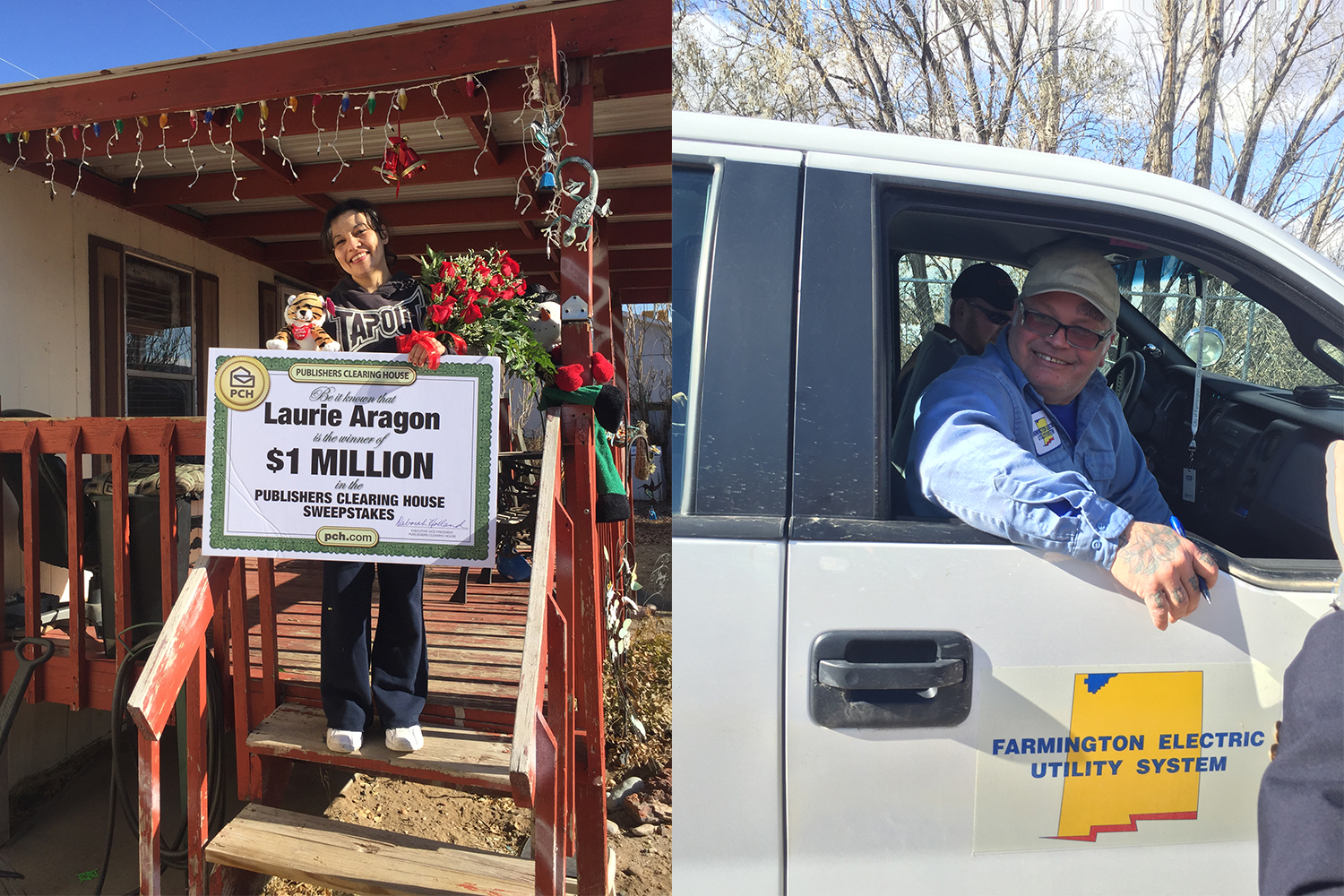
When Aragon saw who it was, she called her dog back — and was told she had won $1 million. While Guja says plenty of winners gush about how the money is coming at just the right time, in her situation, this was literally the case.
“She said, ‘The reason I wasn’t coming to the door was I thought you were bill collectors because they’d been coming to the house,’” Guja remembers. “And sure enough, while we were there, the power authority showed up to give her a final shutoff notice … because she hadn’t been paying the bills. They stumbled into the scene of us giving away this money and they were so happy for her … the guy tore up the notice like, ‘I’m going to tell them I guess you can pay that, right?’ She’s like, ‘Yeah!’ They were hugging her and then they all got in their truck and left. So it was pretty wild timing.”
It isn’t always the case that someone in dire financial straits wins money. There was the time Guja surprised a woman in Massachusetts with $1 million; she was halfway down the gangplank of a ferry after a day of shopping in Provincetown when she noticed the Prize Patrol on the dock. Then there’s the time a nurse outside of Buffalo, New York, won another million: Guja had to get her husband’s number from a neighbor, then convince him to get his wife to leave work early for something he initially thought was fake.
While the act of handing out huge amounts of money seems to necessitate a certain level of production value, what’s going on behind the scenes of PCH giveaways feels more like a half-baked scheme from a romantic comedy. Guja does the research about where the winner lives, if they have a LinkedIn page, where they work — in case they don’t pick up through the phone number they provided and he needs to find a different way to contact them. When he arrives at the winner’s address, from the way he tells it, half the time it’s a wild goose chase of tracking down the recipient through family members, neighbors and coworkers.
And on rare occasions, the winners even sneak up on him.
This fall, Guja was in Ogdensburg, New York, a town on the St. Lawrence River across from Canada. He was staying in an old school building that had been converted into a bed and breakfast. “It was literally a classroom with furniture in it,” he says of his bedroom. But he lives for the local flavor.
“I asked the owners where I should go to dinner,” he says. “I go on Yelp and do my own research, but there wasn’t too much, and I just want to always bounce ideas off locals. He said to go to this place Busters, which was already on my radar. So I said, I’ll go to Busters.”
As the only person no one knew at the sports bar and restaurant — whose specialty is their “famous Busters Zings,” or boneless chicken wings — other patrons immediately struck up a conversation. Where was he from? What was he doing there? What kind of work was he in? Once he let slip he was there for a PCH giveaway, everyone forgot about their Zings.
“Well, are you coming to my house?” the bartender asked. She was a young woman in her early thirties, which fit the profile of the winner. “And I was like, ‘Well, what’s your name?’” Guja recounts. “She’s like ‘Krystal.’ And in my head I’m like ‘Holy shit. This is actually the winner.’” But he kept the secret for that night, waiting until the next day to show up to her house. When she wasn’t there, he went back to Busters with his flowers, Champagne, fake oversized check and real, cashable check for $10,000.
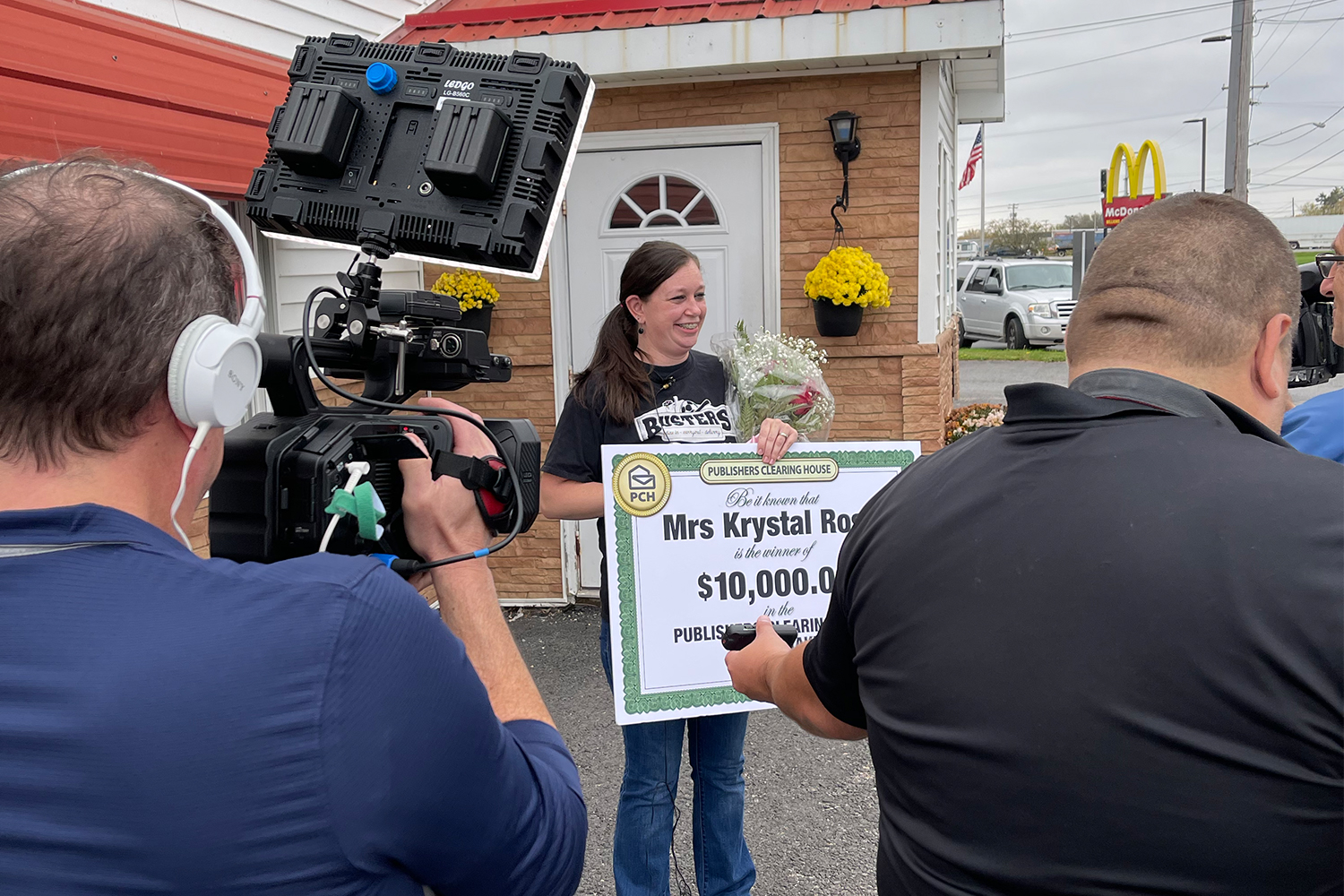
“Everyone in the town came down to the bar after that, of course. So then word starts spreading,” he says. “I ended up hanging out with my camera guys and we had the local newspaper. We had a TV station from [Watertown] … And everyone just hung out and celebrated for her. Which is something that we’ve had happen before, too.”
The people who were at Busters in Ogdensburg that day or on the dock in Massachusetts or in the mobile home park in New Mexico will likely remember those moments fondly. But Guja, who travels to towns few people go to for work or vacation and who meets people from all walks of life on what may be the best day of their life, works in a kind of perpetual, enviable rose-colored bubble where everything is beautiful and nothing hurts.
He feels bad for people, like many of his friends, who only travel to major hubs like Los Angeles, Austin, Seattle and New York City. “It’s like, you’re never really going to rural areas necessarily,” he says. “So [my job] keeps me out of that bubble that we can fall into, especially in places like New York. I really get to see how most of America really lives.”
It doesn’t hurt that, once people find out who Howie is, they’re always happy to see him.
This article was featured in the InsideHook newsletter. Sign up now.
